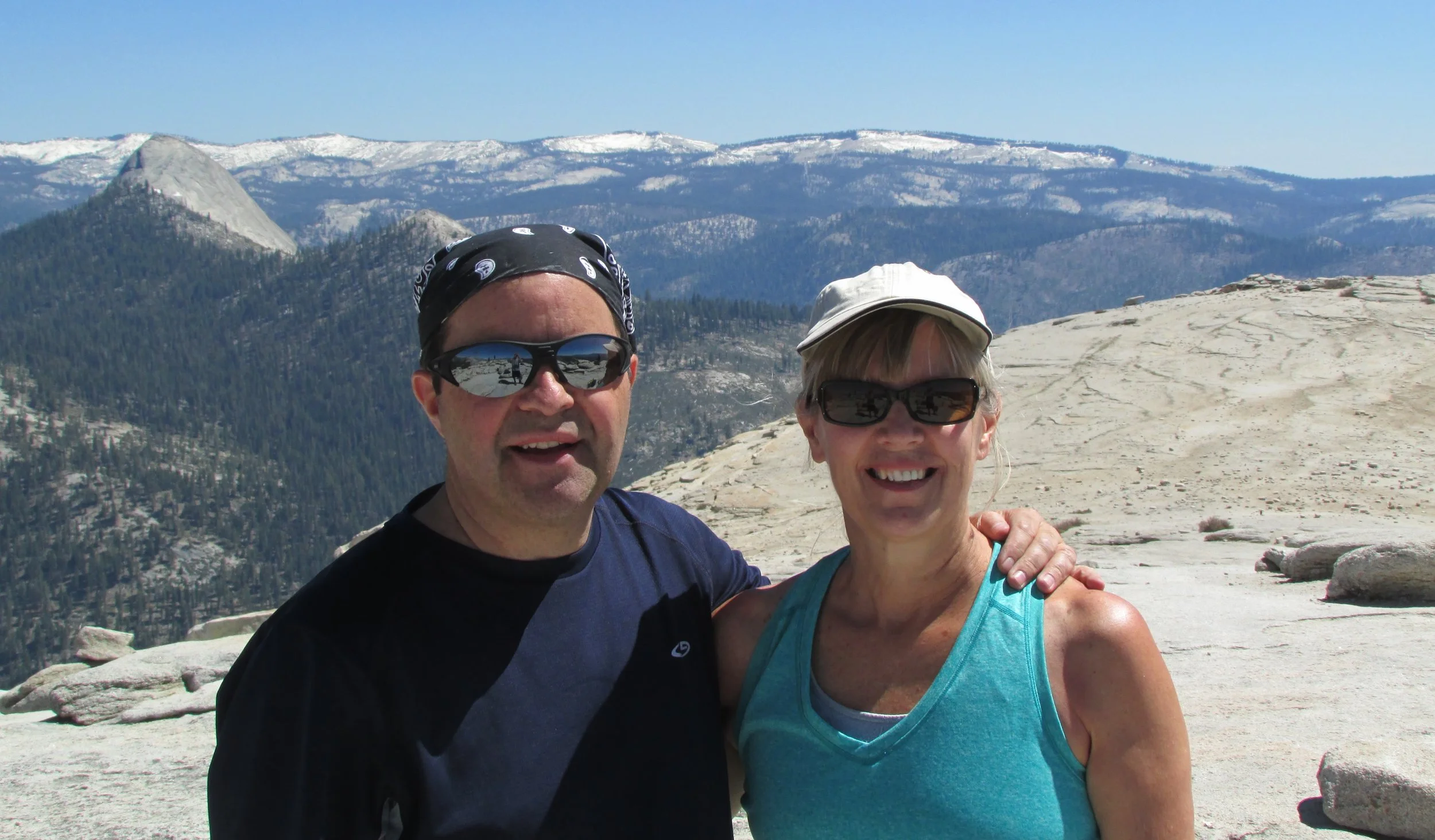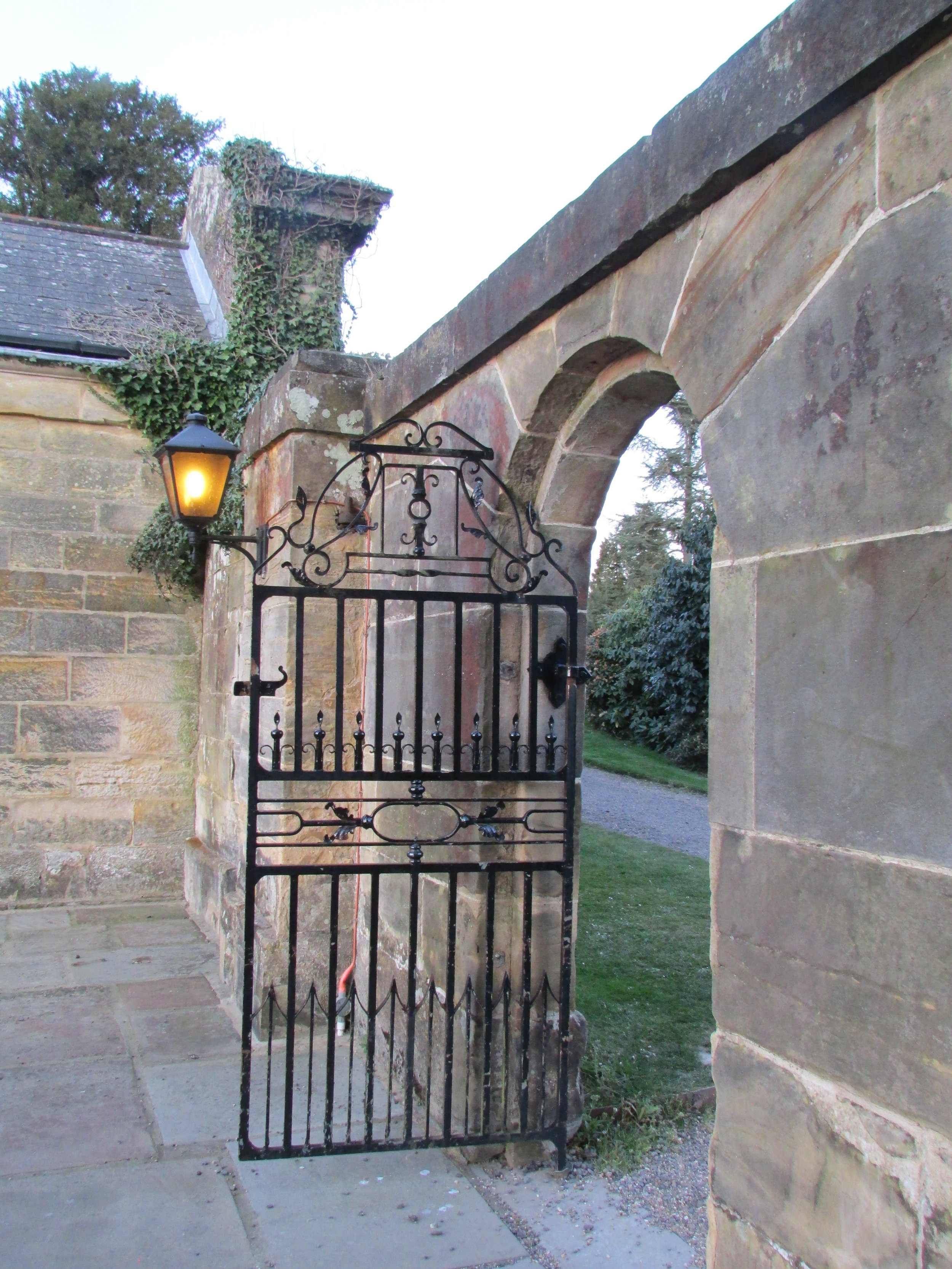One of Dennis' and my favorite pastimes is hiking, and one of our favorite places to hike is Yosemite National Park. The majestic granite cliffs and roaring water falls get me every time.
A few years ago we took the 5,000 foot climb up to Half Dome, the park's icon. In order to make it back before dark, we started our ascent in the early morning hours. After hours of hiking, we reached the sub-base, cautiously climbing the rock-hewn steps. The last 400-foot ascent took work gloves and upper-body strength to pull ourselves up the cables to make the 45-degree climb to the top.
At dusk, we walked back to Curry Village, our tent area in the valley, more exhausted than exhilarated about the fact that we had made it to the top. We literally crawled into our bed that night with aching muscles that Ibuprofen barely touched.
Half Dome from Yosemite Valley
If you were hiking and came to a fork in the trail where a sign post gave you two options, which trail would you choose, the trail of Pleasing God or the trail of Trusting God?
It's easy to make the Christian life about what we do, striving to please God, comparing ourselves to others, making our way to the top with the effort to please.
Years ago while reading the book, Truefaced, I learned that there are two trails we can hike as believers. For years, I joined the many hikers on the trail of Pleasing God. It was about effort, validation, and measuring up.
My perspective changed when I realized I could take the trail of Trusting God. This trail had its challenges, but it was different. Pleasing God led to perfectionism, self-condemnation, and discouragement. But, taking the trail of Trusting God turned my focus from me to him.
When I realized the difference between the two trails, I made a U-turn in my Christian journey, retracing my steps to arrive at the trail of Trusting God. I could trust him with my life. I was free to be who God says I am without the burden of striving for perfection in order to please him or earn his approval. I hiked empowered by the truth that I am already loved and accepted. I hiked knowing he is proud of me, his growing child. My journey became about maturity, not perfection.
For those who hike the trail of Pleasing God, it's time to change course. You'll find God's love, grace, and mercy abundant on the trail of Trusting God. I'd love for you to come over and join me on the trail. Because, you see, it's in trusting that we please.
At the top of Half Dome








